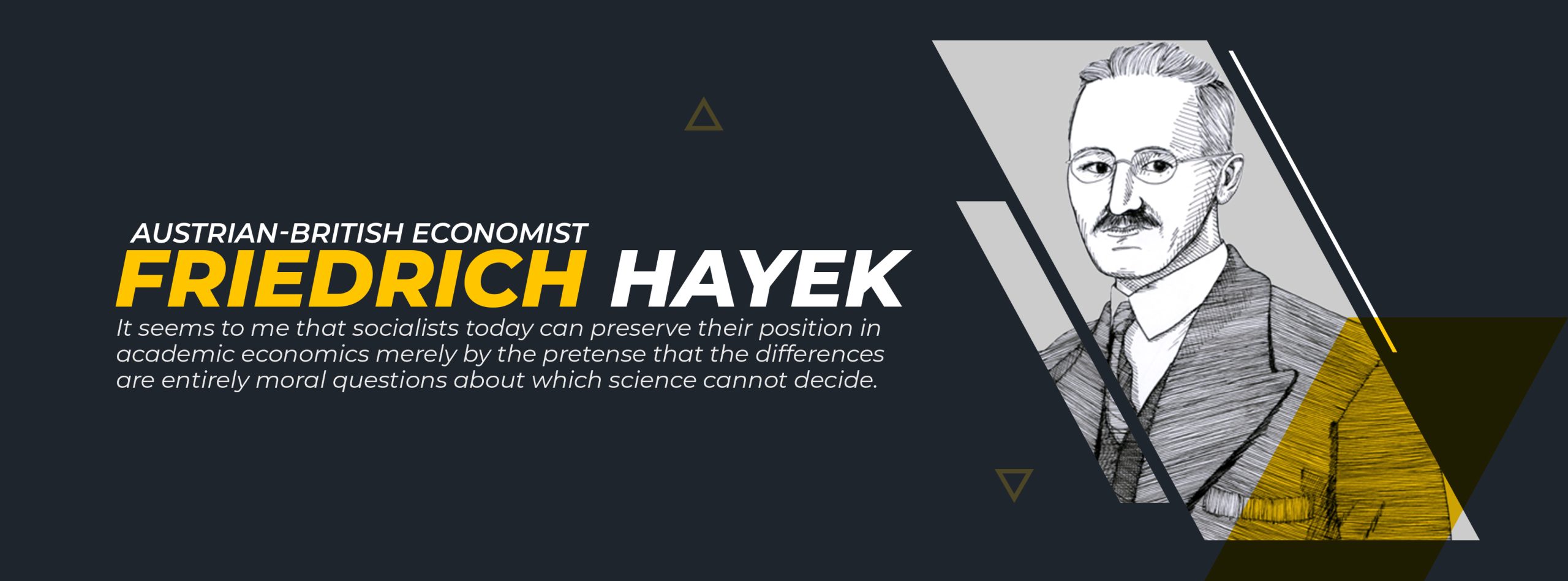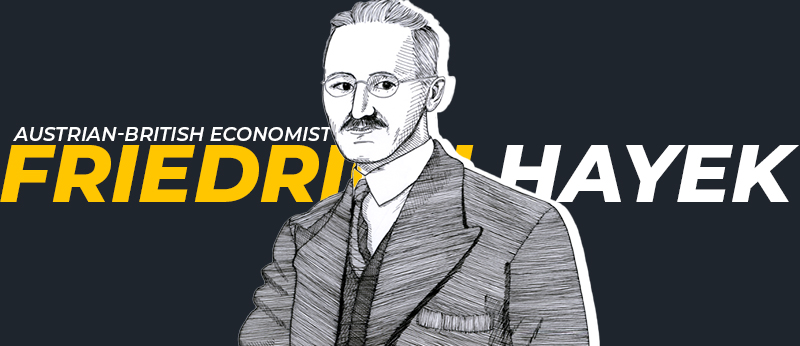Top 10 most inspiring quotes by Friedrich Hayek
- The progress of the natural sciences in modern times has of course so much exceeded all expectations that any suggestion that there may be some limits to it is bound to arouse suspicion.
- This means that to entrust to science – or to deliberate control according to scientific principles – more than scientific method can achieve may have deplorable effects.
- It can hardly be denied that such a demand quite arbitrarily limits the facts which are to be admitted as possible causes of the events which occur in the real world.
- Why should we, however, in economics, have to plead ignorance of the sort of facts on which, in the case of a physical theory, a scientist would certainly be expected to give precise information?
- Our moral traditions developed concurrently with our reason, not as its product.
- We have indeed at the moment little cause for pride: as a profession we have made a mess of things.
- We know: of course, with regard to the market and similar social structures, a great many facts which we cannot measure and on which indeed we have only some very imprecise and general information.
- We shall not grow wiser before we learn that much that we have done was very foolish.
- It is rather a problem of how to secure the best use of resources known to any of the members of society, for ends whose relative importance only those individuals know.
- The credit which the apparent conformity with recognized scientific standards can gain for seemingly simple but false theories may, as the present instance shows, have grave consequences.

Friedrich von Hayek (1899–1992) was a prominent Austrian-British economist and philosopher known for his influential contributions to classical liberalism and free-market economics. Born in Vienna, Austria, Hayek’s ideas emphasized the importance of individual liberty, limited government intervention, and spontaneous order in economic and social systems.
He gained recognition for his book “The Road to Serfdom” (1944), which warned against the dangers of centralized planning and totalitarianism, advocating instead for decentralized decision-making and competitive markets as safeguards for personal freedom. Hayek’s insights were instrumental in shaping the post-World War II revival of free-market thought.
Throughout his career, Hayek engaged in debates with notable economists such as John Maynard Keynes. He won the Nobel Memorial Prize in Economic Sciences in 1974 for his pioneering work in the theory of money and economic fluctuations.
In addition to his economic contributions, Hayek also explored the nature of knowledge and the limits of human understanding in his philosophy. He believed that the dispersed and tacit nature of knowledge in society made central planning ineffective and that institutions should evolve organically to serve societal needs. Hayek’s legacy continues to influence economic and political discussions, highlighting the enduring relevance of his ideas in the modern world.
👉Listen to the best music from all over the world at www.liveonlineradio.net #Austrian_British_economist #FM #Online_radio #radio #live_online_radio #live #world_radio





